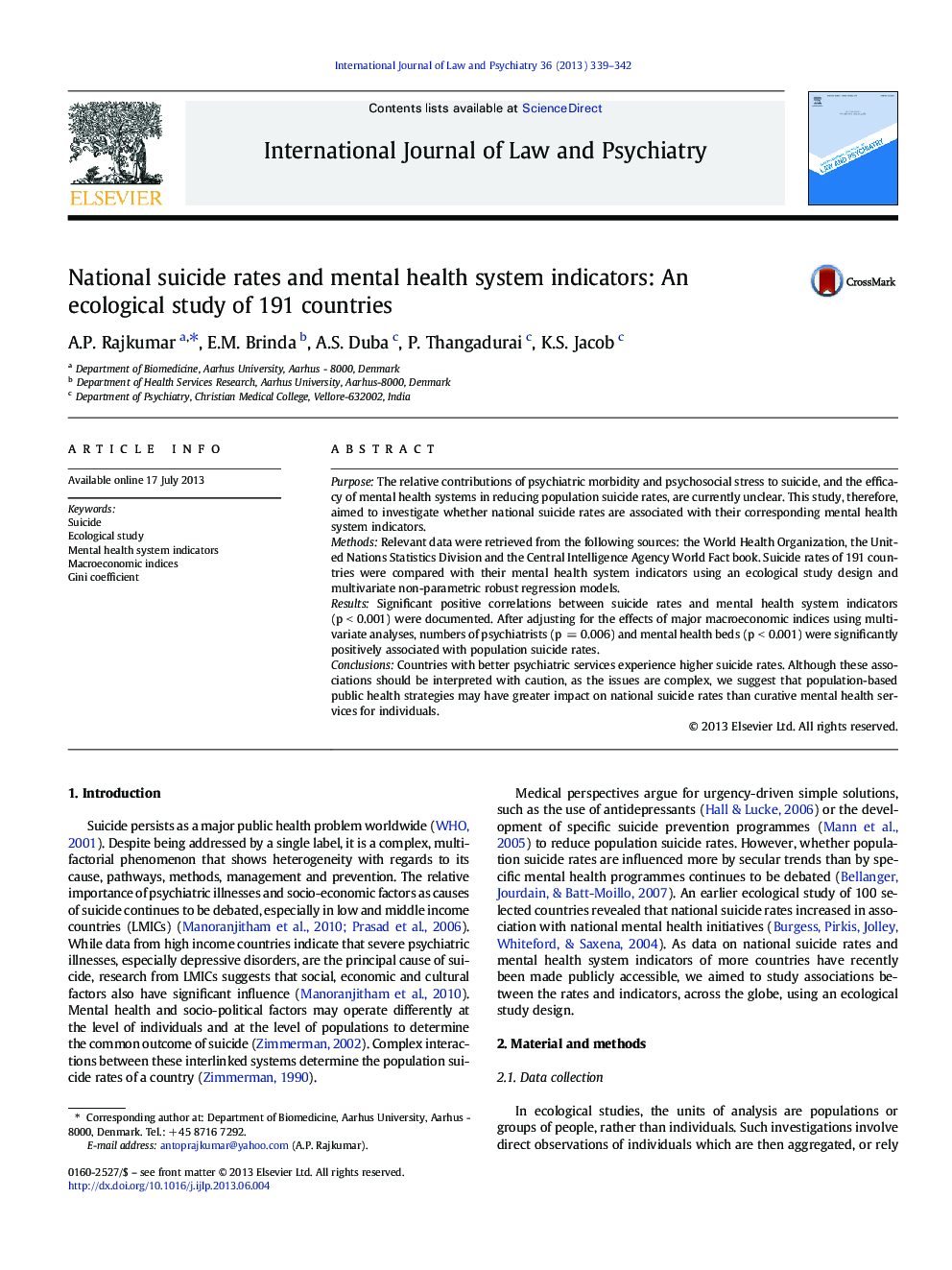| Article ID | Journal | Published Year | Pages | File Type |
|---|---|---|---|---|
| 100823 | International Journal of Law and Psychiatry | 2013 | 4 Pages |
PurposeThe relative contributions of psychiatric morbidity and psychosocial stress to suicide, and the efficacy of mental health systems in reducing population suicide rates, are currently unclear. This study, therefore, aimed to investigate whether national suicide rates are associated with their corresponding mental health system indicators.MethodsRelevant data were retrieved from the following sources: the World Health Organization, the United Nations Statistics Division and the Central Intelligence Agency World Fact book. Suicide rates of 191 countries were compared with their mental health system indicators using an ecological study design and multivariate non-parametric robust regression models.ResultsSignificant positive correlations between suicide rates and mental health system indicators (p < 0.001) were documented. After adjusting for the effects of major macroeconomic indices using multivariate analyses, numbers of psychiatrists (p = 0.006) and mental health beds (p < 0.001) were significantly positively associated with population suicide rates.ConclusionsCountries with better psychiatric services experience higher suicide rates. Although these associations should be interpreted with caution, as the issues are complex, we suggest that population-based public health strategies may have greater impact on national suicide rates than curative mental health services for individuals.
